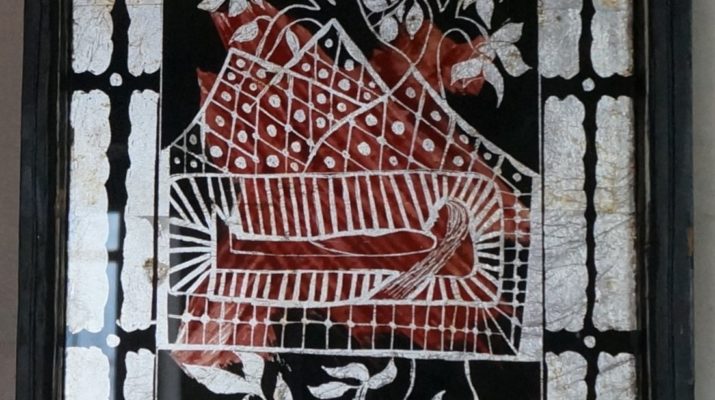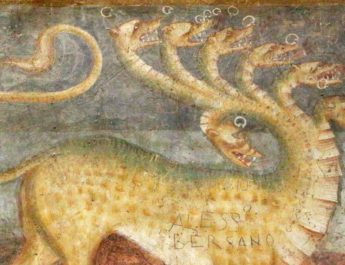John 19:38-42
Dark Saturday ABC
38 After these things, JosephA of Arimathea,B who was a discipleC of Jesus,D
A “Joseph” = Ioseph. From Hebrew Yoseph (he increases; Joseph); from yasaph (to add, increase, continue, exceed). This is Joseph, meaning “he increases.”
B “Arimathea” = Harimathaia. 4x in NT. From Hebrew compare Ramah (Ramah, height); from rum (to be high, rise, exalt self, extol, be haughty; to rise literally or figuratively). This is Arimathea, a city by Jerusalem.
C “disciple” = mathetes. From matheteuo (to make a disciple of); from manthano (to learn key facts, gain knowledge from experience; generally implies reflection as part of the learning process); from math– (thinking things through). This is a disciple, learner, or student. It is where we get “mathematics” from.
D “Jesus” = Iesous. From Hebrew Yehoshua (Joshua, the Lord is salvation); {from YHVH (proper name of the God of Israel; the self-existent and eternal one); {from havah (to become) or from hayah (to come to pass, become, be)} + yasha (to deliver, defend, help, preserve, rescue; properly, to be open, wide or free, which implies being safe. So, in a causative sense, this is to free someone)}. This is Jesus or Joshua in Greek – the Lord saves or the Lord is salvation.
though a secretE one because of his fearF of the Jews,G askedH PilateI
E “secret” = krupto. 18x in NT. This is to hide by covering, secret, hidden things. This is the root of the word “cryptography.”
F “fear” = phobos. From phebomai (to flee, withdraw, be put to flight). This is panic flight, fear, fear being caused, terror, alarm, that which causes fear, reverence, respect.
G “Jews” = Ioudaios. From Ioudas (Judah, Judas); from Hebrew Yehudah (Judah, son of Jacob, his tribal descendants, a name for the southern kingdom. Literally, it means praised); probably from yadah (to throw one’s hands into the air in a gesture of praise); from yad (hand). This is Jewish, a Jew, or Judea.
H “asked” = erotao. From eromai (to ask) OR from ereo (to say, tell, call, speak of). This is asking a question or making an earnest request. It is used between someone with whom the asker is close in some sense. So, they anticipate special consideration for their request.
I “Pilate” = Pilatos. From Latin Pilatus (may mean one who has skill with a javelin); perhaps from pilum (javelin) OR perhaps from pileus (a soft cap made of felt that was brimless and was associated with people who were freedmen). This is Pilate. See https://en.wikipedia.org/wiki/Pontius_Pilate
to let him take awayJ the bodyK of Jesus. Pilate gave him permission,L so he cameM and removedN his body.
J “take away” = airo. This is to lift up in a literal or figurative sense. So, it could mean to lift, carry, or raise. It could also imply lifting something in order to take it away or remove it. Figuratively, this can be used for raising the voice or level of suspense. It can mean sailing off as raising the anchor. It can also correspond to a Hebrew expression for atonement of sin (lift/remove sin).
K “body” = soma. Perhaps from sozo (to save, heal, rescue); from sos (safe, well, rescued). This is body or flesh. It can be body in a literal or figurative sense (as the body of Christ). This is where the word “somatic” comes from.
L “gave…permission” = epitrepo. 18x in NT. From epi (on, upon, against, what is fitting) + the same as trope (turning, change, shifting); {from trepo (to turn)}. This is to allow, permit, yield, entrust, give license.
M “came” = erchomai. This is to come or go.
N “removed” = airo. Same as “take away” in v38. See note J above.
39 Nicodemus,O who had at firstP come to Jesus by night, also came, bringingQ a mixtureR
O “Nicodemus” = Nikodemos. 5x in NT. From nikos (victory, triumph – especially a conquest); {from nike (victory, conquest; figurative for what makes one successful)} + demos (district, multitude, rabble, assembly; Greeks bound by similar laws or customs); {from deo (to tie, bind, compel, declare unlawful)}. This is Nicodemus, meaning “victorious among his people.”
P “first” = protos. From pro (before, first, in front of, earlier). This is what is first, which could be the most important, the first in order, the main one, the chief.
Q “bringing” = phero. This is to bear, bring, lead, or make known publicly. It is to carry in a literal or figurative sense.
R “mixture” = migma. 1x in NT. From mignumi (to mix). This is a mixture or compound.
of myrrhS and aloes,T weighing about a hundredU pounds.V
S “myrrh” = smurna. 2x in NT. Perhaps from muron (ointment, perfume, or oil for anointing); compare Arabic murr (myrrh, literally meaning bitterness) & Hebrew mo (myrrh, literally meaning bitterness). This is myrrh, used in preparing the body for burial. Can also be figurative for romantic desire. See https://en.wiktionary.org/wiki/myrrh
T “aloes” = aloe. 1x in NT. This is either sap from a tree called the aquillaria agallocha, the eaglewood tree, or it could refer to proper aloe. In addition to its use for embalming, aloe is associated with love in the Song of Songs 4:14.
U “hundred” = hekaton. 17x in NT. This is hundred literal or figurative.
V “pounds” = litra. 2x in NT. From Latin libra (a Roman weight – twelve ounces; also a level or set of scales); from Proto-Italic lithra (pound). This is a pound, which is about 327.5 grams. See https://en.wiktionary.org/wiki/libra#Latin
40 They tookW the body of Jesus and wrappedX it with the spicesY
W “took” = lambano. It does not refer to passive receiving of something, but active acceptance or taking of something whether it is offered or simply nearby. It focuses on individual decision and action.
X “wrapped” = deo. Related to “Nicodemus” in v39. See note O above.
Y “spices” = aroma. Related to “take away” in v38. 4x in NT– all used of bringing spices for Jesus’ body. Perhaps from airo (see note J above). This is a sweet spice, seasoning, or perfume. It is where the word “aroma” comes from.
in linen cloths,Z according to the burialAA customBB of the Jews.
Z “linen cloths” = othonion. 5x in NT. From othone (a cloth made of linen, a sail). This is a band of linen, a wrapping.
AA “burial” = entaphiazo. 2x in NT. From en (in, on, at, by, with) + taphos (a burial place such as a grave, sepulcher, or tomb); {from thapto (to bury, hold a funeral)}. This is to prepare a body to be buried, to embalm.
BB “custom” = ethos. 12x in NT. From etho (custom, what is customary). This is custom habit, rite – also, doing something that the law requires. It can be an unwritten custom, acting in accordance with tradition.
41 Now there was a gardenCC in the placeDD where he was crucified,EE
CC “garden” = kepos. 5x in NT. This is a garden or a place where trees or herbs are grown.
DD “place” = topos. This is a place or region. It is a smaller space that can only hold a limited number of people whereas chora is a larger place. Figuratively it could be an opportunity.
EE “crucified” = stauroo. From stauros (upright stake, cross; literally the horizontal beam of a Roman cross, generally carried by the one convicted to die); from the same as histemi (to stand, cause to stand). This can be to attach someone to a cross or fencing with stakes. In a figurative sense, it could be to destroy, mortify, or subdue passions/selfishness.
and in the garden there was a newFF tombGG in which no one had ever been laid.HH 42 And so, because it was the Jewish day of PreparationII and the tomb was nearby,JJ they laid Jesus there.
FF “new” = kainos. This is not new as in new versus old. This is new in the sense of novel, innovative, or fresh.
GG “tomb” = mnemeion. From mousikos (to remember); from mneme (memory or mention); from mnaomai (to remember; by implication give reward or consequence); perhaps from meno (to stay, abide, wait, endure). This is properly a memorial – a tomb, grave, monument.
HH “laid” = tithemi. This is to put, place, set, fix, establish in a literal or figurative sense. Properly, it is placing something in a passive or horizontal position.
II “preparation” = paraskeue. 6x in NT. From paraskeuazo (to prepare, get ready); {from para (from beside, by) + skeuos (vessel, tool, container, implement; also vessel in a figurative or literal sense); {from skeuazo (to prepare using a tool)}}. This is preparation or readiness. It can be used specifically to refer to preparing for the Sabbath or a festival.
JJ “nearby” = eggus. Perhaps from agcho (to squeeze). This is nearby or near in time.
Image credit: “Station of the Cross XIV: Jesus is Laid in the Grave” at the Branch Church of St. Bartholomew in Stattendorf in Austria.




